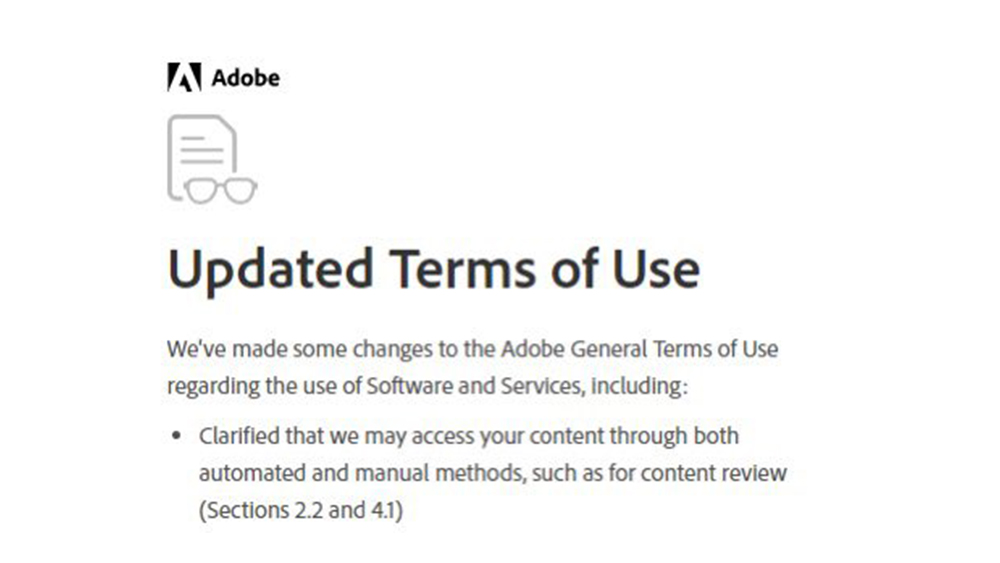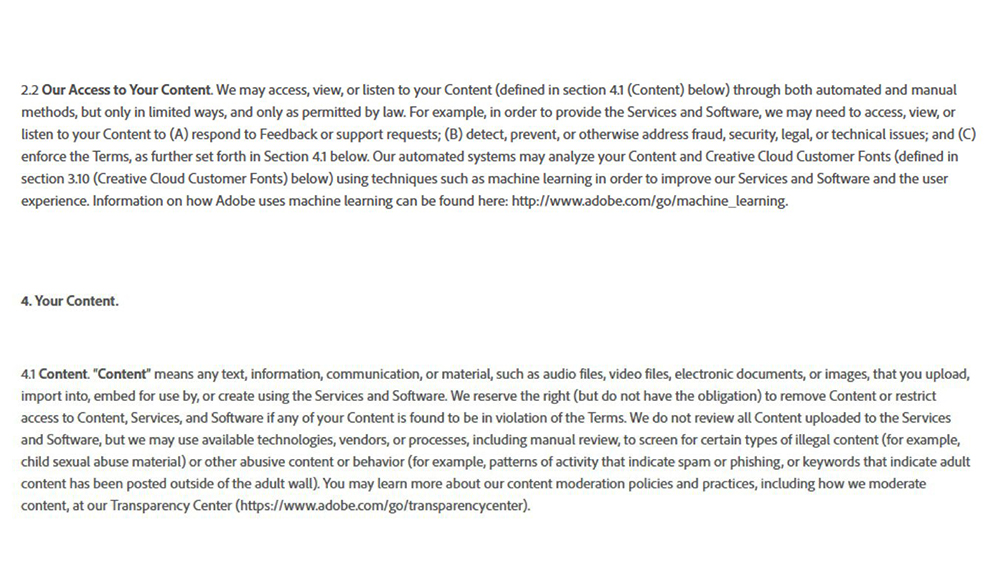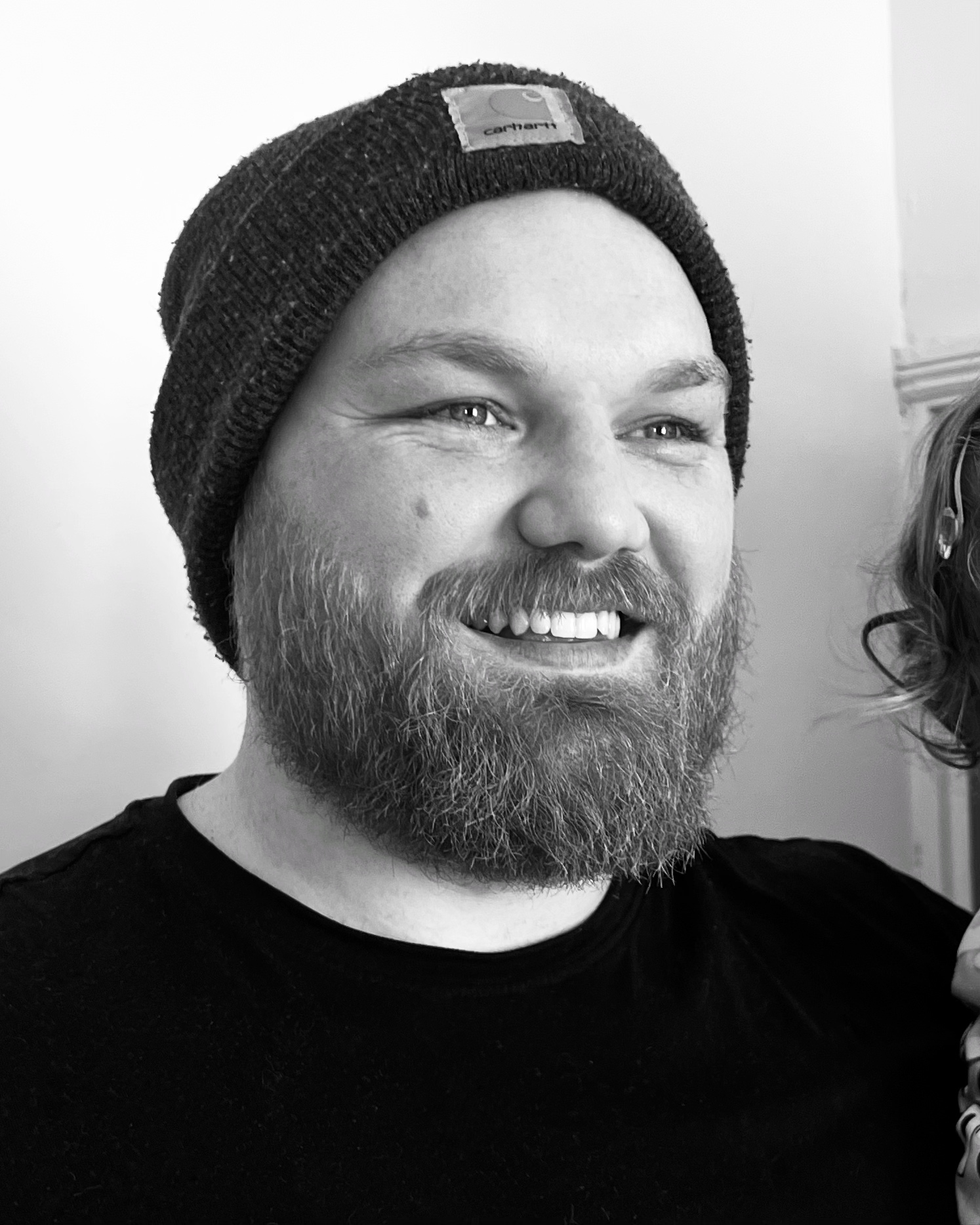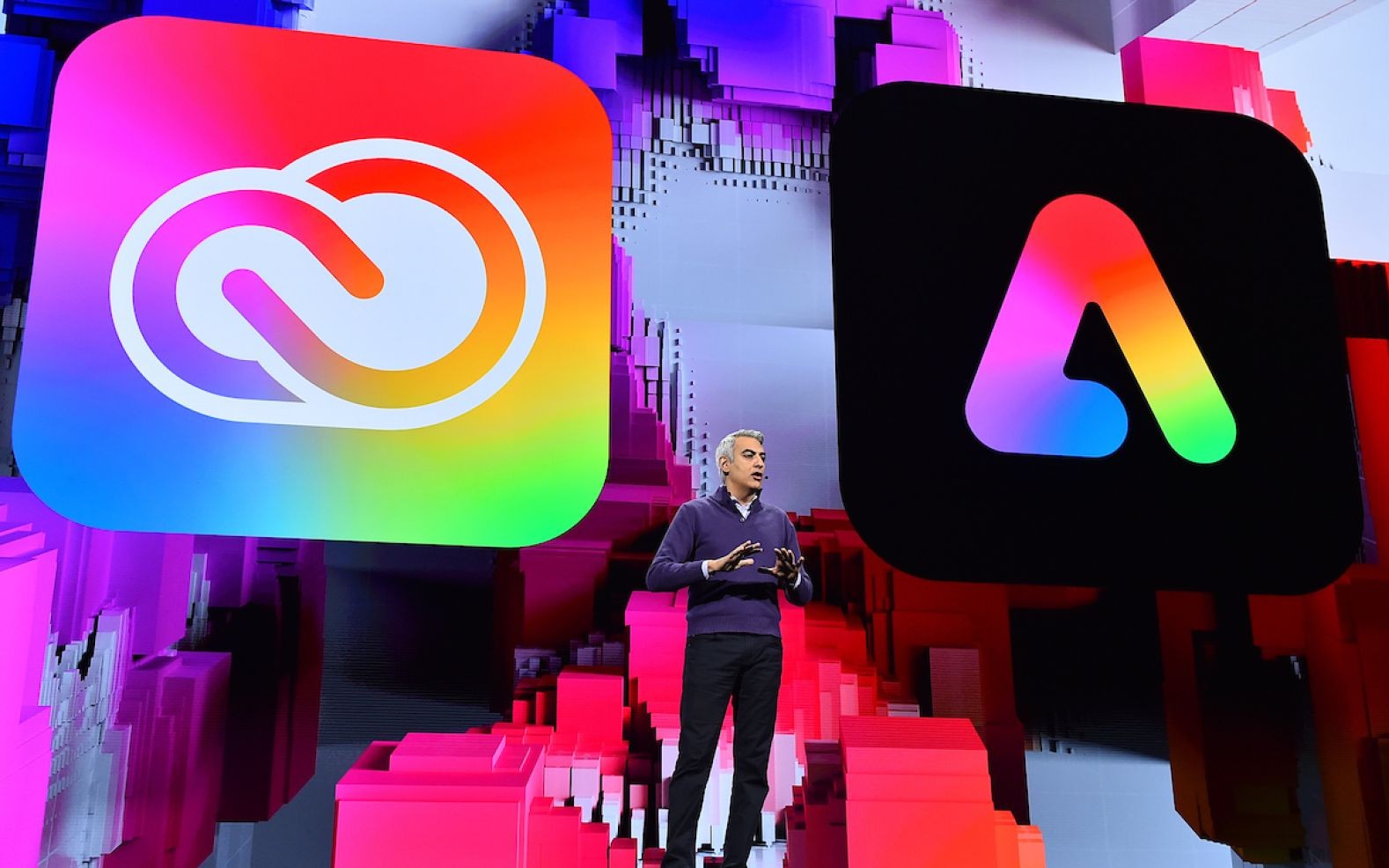What the hell is going on at Adobe?
Adobe updates its Terms of Use and is met with a call for boycott over privacy issues

The best camera deals, reviews, product advice, and unmissable photography news, direct to your inbox!
You are now subscribed
Your newsletter sign-up was successful
In a move that has reverberated throughout all digitally-based creative industries, Adobe has updated its terms of use, adding some questionable points of interest, and causing a call for user revolt.
Over the weekend social media lit up with photographers, videographers, and content creators calling for a boycott of Adobe and its products after its updated terms of use give the media software company access to any form of media uploaded to its many programs. This called into question privacy and security issues and broke the trust of the many creative professionals who use Adobe for their daily workflow.
Since the initial update, Adobe has been inundated with questions and comments. In a bid to answer them, it has released a statement clarifying what the updates mean, and how it will be used moving forward.

Above: Adobe's controverial new terms of use

The new terms of use attempt to make clear that Adobe will only gain access to user content for manual and automated review methods, as 'permitted by law' with Adobe stating, "To be clear, Adobe requires a limited license to access content solely for the purpose of operating or improving the services and software and to enforce our terms and comply with law, such as to protect against abusive content".
Adobe uses 'child sexual abuse material or other abusive content or behavior' as an example of the type of illegal content that will be screened for, this is obviously something that needs to happen and the safeguarding of children is vital, but this has led many to question Adobe's authority in the decision-making and issues with privacy.
In a recent video on this subject, YouTuber Tony Northrup questions both Adobe's authority and the privacy issues of scrutinizing boudoir photography or even snapshots of the family at home, with kids in the bath or paddling pool. He likens this terms of use change to Makita looking through the windows of our houses to make sure that we are using a hammer correctly and describes it as "wildly unacceptable" and adding, "I need privacy when I use my Adobe products!".
In the statement, Adobe has also provided a list of when Adobe applications and services may access content, to settle unease among its users. They are as follows:
The best camera deals, reviews, product advice, and unmissable photography news, direct to your inbox!
" • Access is needed for Adobe applications and services to perform the functions they are designed and used for (such as opening and editing files for the user or creating thumbnails or a preview for sharing).
• Access is needed to deliver some of our most innovative cloud-based features such as Photoshop Neural Filters, Liquid Mode or Remove Background. You can read more information, including how users can control how their content may be used: https://helpx.adobe.com/manage-account/using/machine-learning-faq.html
• For content processed or stored on Adobe servers, Adobe may use technologies and other processes, including escalation for manual (human) review, to screen for certain types of illegal content (such as child sexual abuse material), or other abusive content or behavior (for example, patterns of activity that indicate spam or phishing)."
When read as 'Adobe will gain access to all of your content', it sounds a bit shady, but, from what I can gather, it is more in the same vein as Meta requiring access to your photo library when uploading images to Instagram, rather than Adobe will steal and use your content.
Adobe continues to promise that users' content will remain safe from being used to train Adobe AI, stating outright "Adobe does not train Firefly Gen AI models on customer content". Adobe also thought it necessary to state "Adobe will never assume ownership of a customer's work". Ensuring that users' work remains entirely their own, and Adobe has no ownership and, therefore right to use it.
The clarification statement did help to answer some of the questions surrounding the terms of use update, however, more remain, especially regarding the methods in which Adobe chose to review content, and whether this would break any NDA agreements for professionals.
Adobe almost has a monopoly on editing applications and programs, and it is highly unlikely that users will stick to any boycotting actions. There are many RAW image editors out there that rival Adobe's, Capture One being a main competitor among professionals, and there are certainly many other video editing software that rival or perhaps even trump Premiere Pro. But where Adobe takes the cake is with InDesign and the communication between its suite of applications and programs.
It will be interesting to follow this story further and see if the updated terms will have any effect on the professional industry, and if those who have called for a boycott follow through.
You may also be interested in our guides to the best software for image editing and the best software for video editing.

Kalum is a photographer, photo editor, and writer with over a decade of experience in visual storytelling. With a strong focus on photography books, curation, and editing, he blends a deep understanding of both contemporary and historical works.
Alongside his creative projects, Kalum writes about photography and filmmaking, interviewing industry professionals, showcasing emerging talent, and offering in-depth analysis of the art form. His work highlights the power of visual storytelling.

